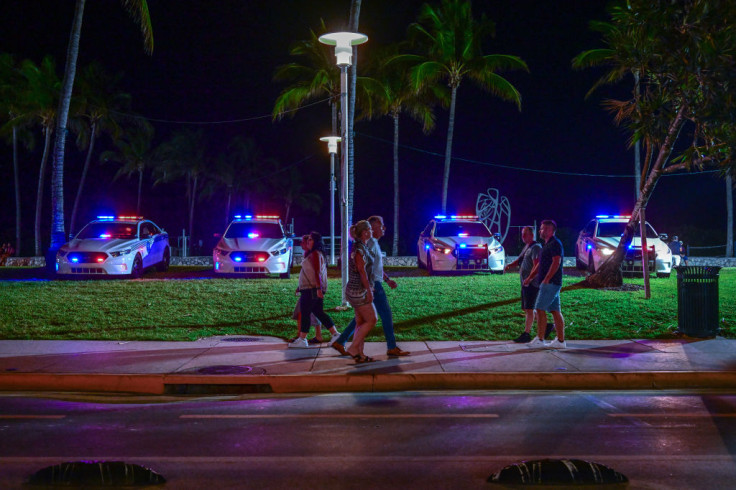
SEATTLE - Despite efforts to decriminalize marijuana in the state of Florida, people in Miami-Dade County continue to experience racial disparities when it comes to arrests for possession of the plant.
In December 2018, the Agriculture Improvement Act also known as "Farm Bill" was signed into law making hemp, a substance that looks and smells like marijuana, legal across the state of Florida. And although the Sunshine State has laxed its stance over the use of marijuana, arrests across Miami-Dade county have gone up.
But as an investigation from the Miami Herald reveals, Black people are being prosecuted at higher rates despite making up just a relatively small fraction of Miami-Dade's total population. The Herald recounts the story of Fred Johnson, who was arrested in June of last year while smoking a joint outside the Clevelander hotel.
Miami Beach officers charged him with a misdemeanor for having less than 20 grams of cannabis, but charges were dropped six days later. Johnson was also hit with a criminal city ordinance violation for smoking marijuana in public.
Johnson's story is one of the more than 4,200 people who have been hit with misdemeanor marijuana charges over the last five years. According to the report, nearly 60% of those cases were brought against Black defendants, despite Black people making up 18% of the county's population.
In at least 97% of the cases, prosecutors ultimately ended up dropping the charges, data from the Miami-Dade Clerk of Courts revealed.
Vows to stop prosecution
In 2019, State Attorney Katherine Fernandez Rundle sent out a memo in which she explained her office would no longer prosecute low-level marijuana offenses, pinning her decision to high costs to conduct investigations and to challenges of lab testing to distinguish between hemp and illegal cannabis.
Between Jan. 1, 2018 and Aug. 5, 2019, when Fernandez Rundle's memo went out, charges filed against Black defendants involving misdemeanor marijuana possession have gone up from 47% to 59%, despite data from the 2023 National Survey on Drug Use and Health revealing that Black people and white people consume the drug at similar rates.
"You don't see anybody else of any other race going through this ... and being as aggressively handled," Johnson told the Herald.
Miami Beach police department is second in marijuana arrests
According to the Herald's report, officers in Miami Beach have made more misdemeanor marijuana arrests than any other police department in the county, with the exception of Miami-Dade Police Department, which has seven times as many sworn officers.
Charges filed against Black defendants in Miami Beach has also seen a slight increase after Fernandez Rundle's announcement, going from 62% to 66%.
Arrests for marijuana possession are normally paired with other charges
According to Miami police, their policy is to issue civil citations for 20 grams of marijuana or less, until a third citation. But arrests are not made unless it is in conjunction with another charge, officials said.
This can lead to racial profiling, says Kara Gross, the legislative director and senior policy counsel for the American Civil Liberties Union on Florida.
"It creates a system of distrust with law enforcement," she said. "It's a longstanding issue where very minor offenses — marijuana, loitering, jaywalking — are very aggressively enforced in communities of color."
She added that the only solution to make a change is for police to stop making arrests for small amounts of cannabis, as legalizing it would be essential to addressing "racial disparities and creating a more fair system."
Floridians to vote on marijuana next month
Two constitutional amendments will be contested in Florida in November. Amendment 3 would legalize recreational marijuana, while Amendment 4 would expand abortion access in a state with highly restrictive reproductive rights legislation.
As of August, 38 states in the U.S. have legalized cannabis for medical use, while 24 states have legalized it for recreational use.
© 2024 Latin Times. All rights reserved. Do not reproduce without permission.










